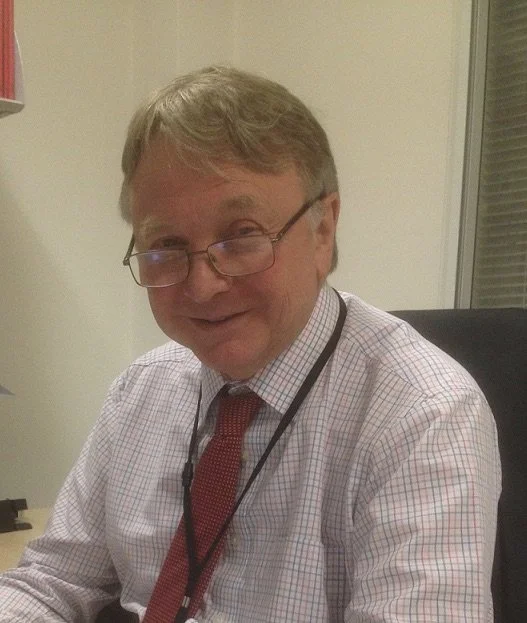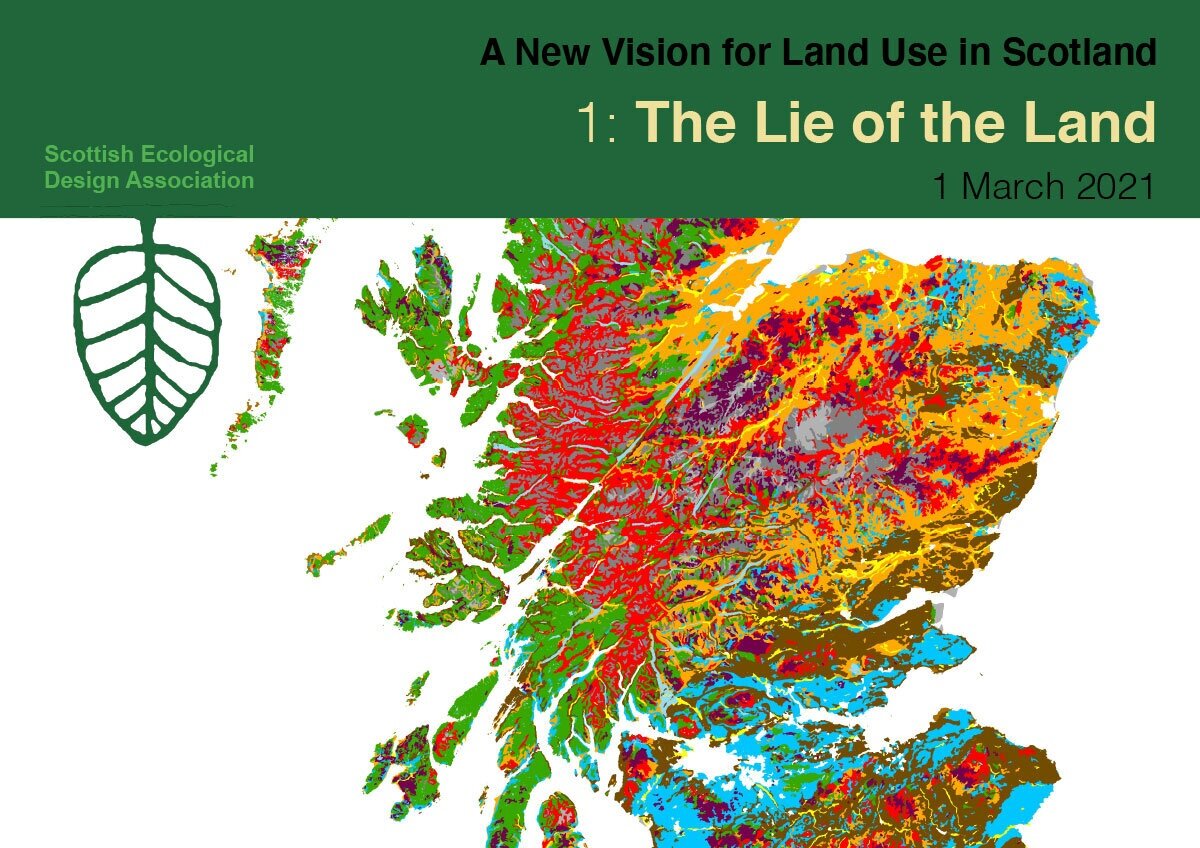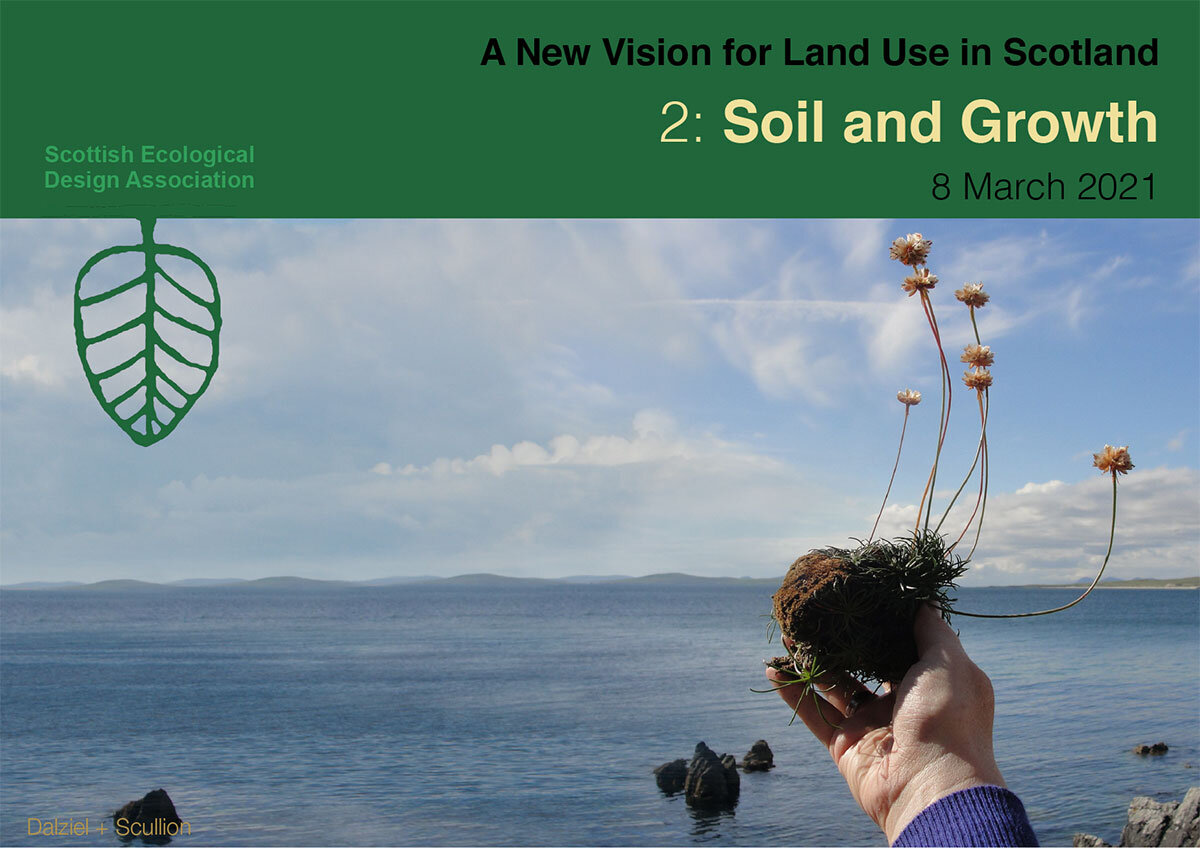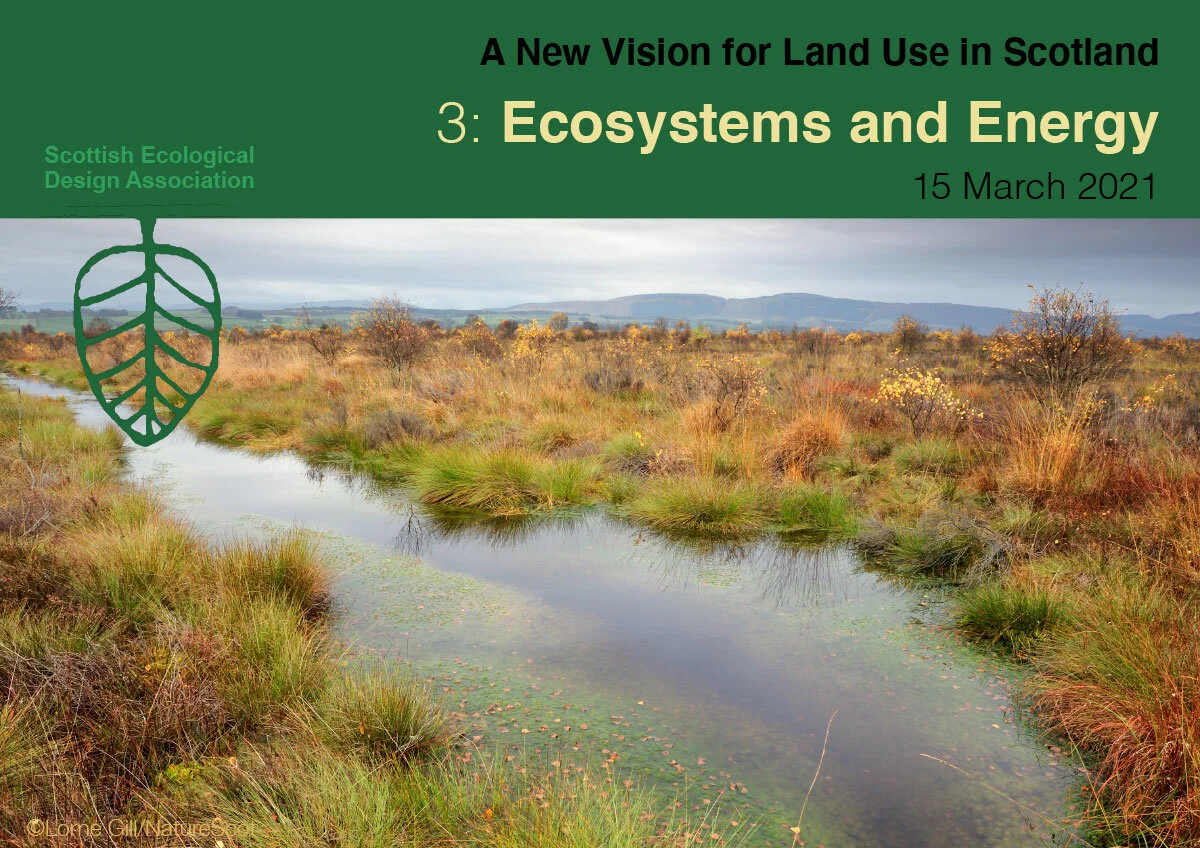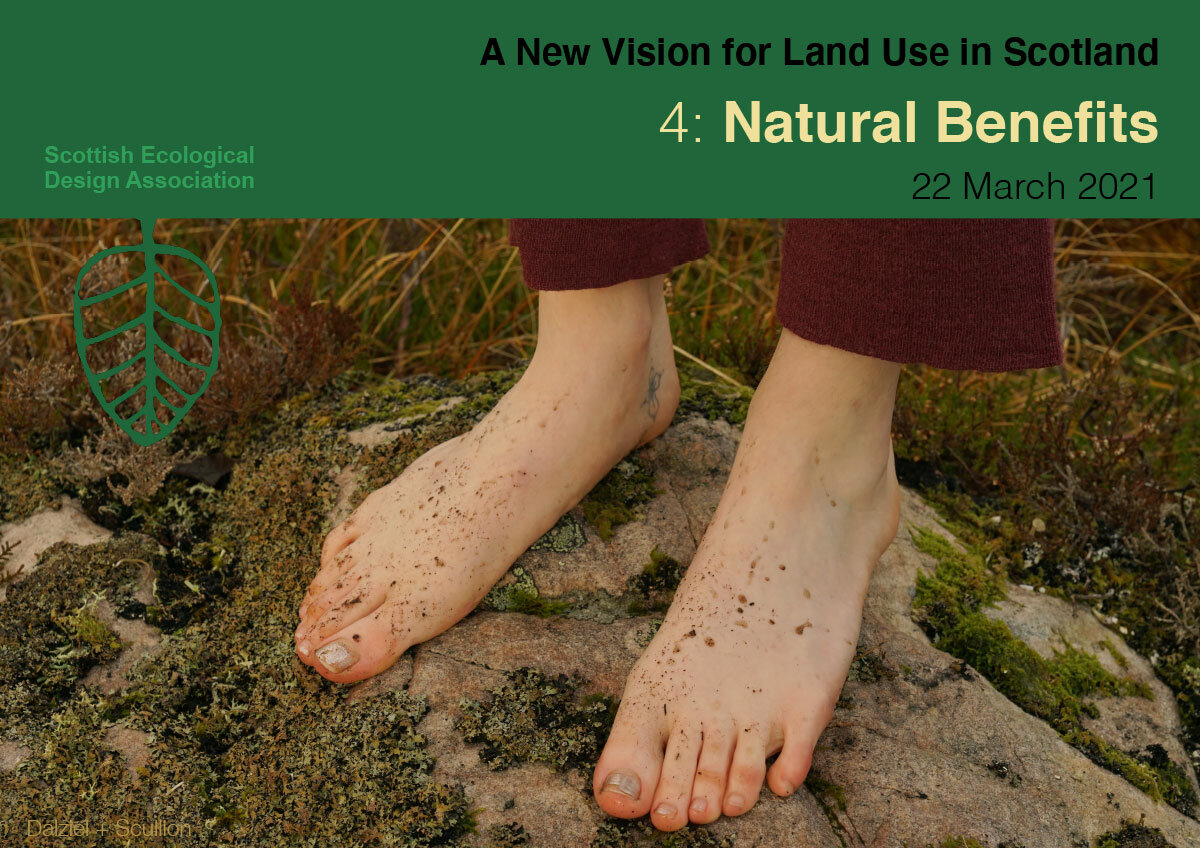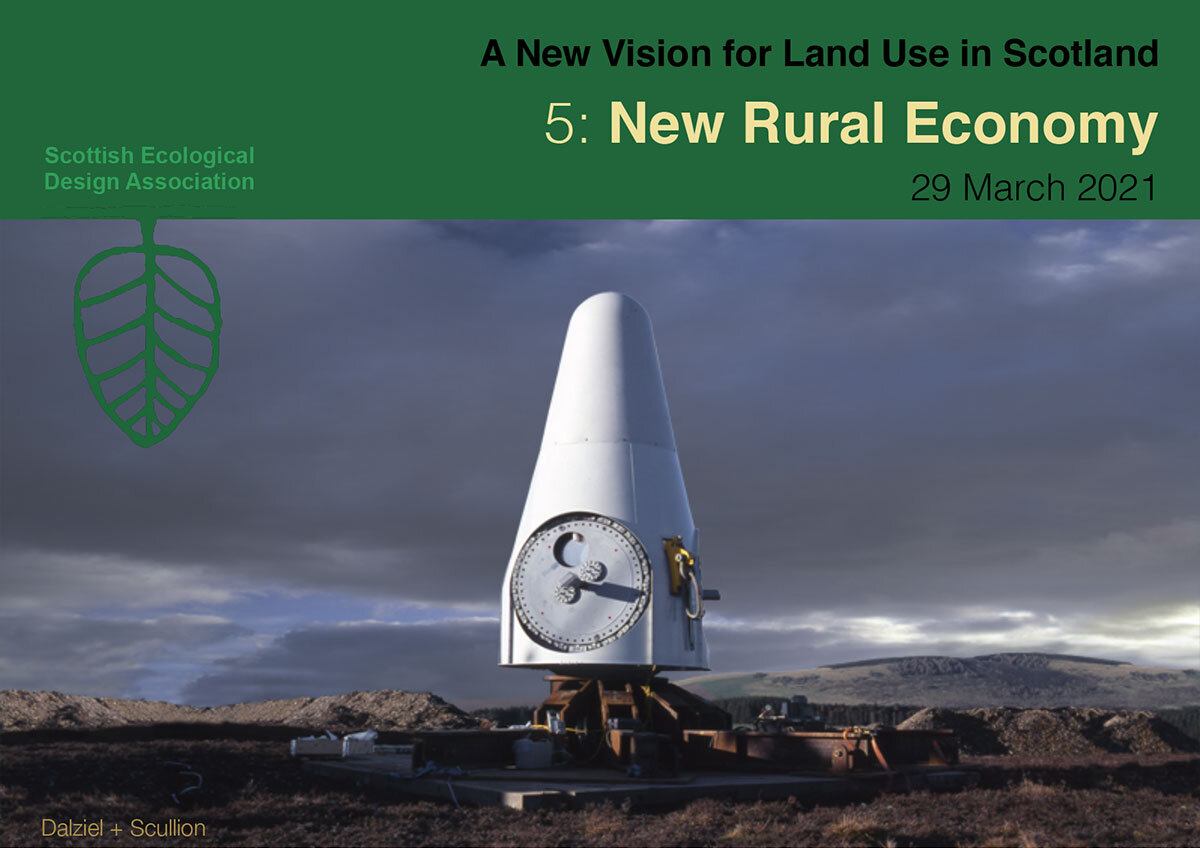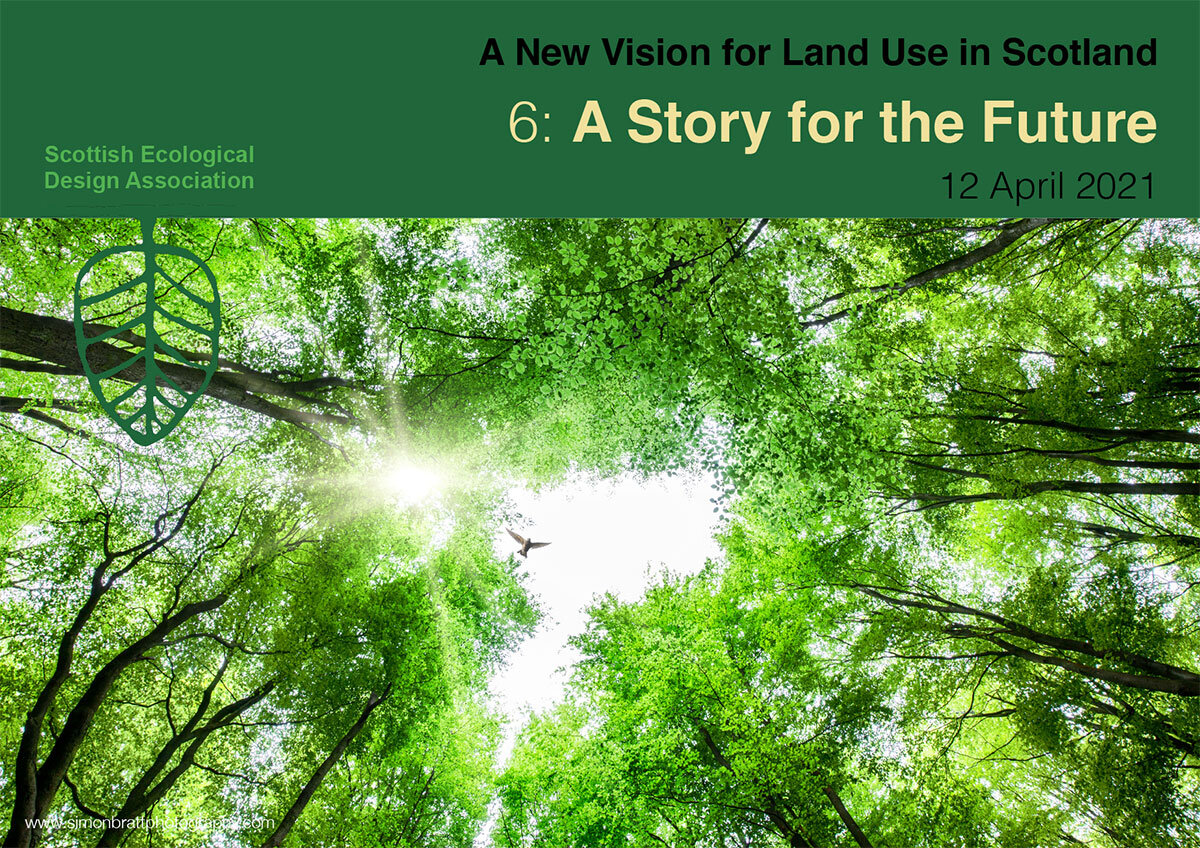Land Conversations / Do we need a Carbon Emissions Land Tax?
Do we need a carbon emissions land tax?
Scotland’s land-use sector currently emits more harmful emissions than the country’s international aviation and shipping sectors put together. However, where the land sector differs is that it has potential to absorb emissions, and therefore not only enable the country to reach net zero emissions by 2045 but also keep emissions at that level beyond that date.
How do we get there?
Wild places charity the John Muir Trust and SEDA Land invite you to join a discussion about the policies Scotland might need to introduce to govern land use better so that it functions as a net sink for greenhouse gases.
Left to its own devices, Scotland’s land would be a natural carbon store. However, many of Scotland’s upland areas, which are of low agricultural value, are falling far short of their carbon capture potential, with native wildlife and habitats suffering from decades of decline.
This 90-minute event will introduce a novel solution to the problem - a Carbon Emissions Land Tax, as one proposed policy that Scotland should consider if it is seious about meeting its ambition of being a world leader on climate.
The proposed tax would incentivise behavioural change among landowners, encouraging them to manage their land as a natural carbon store, in the interests of the public, local communities, wild places and our climate.
With COP26 taking place in Glasgow this month, it’s time for new policies to incentivise land-use change in Scotland. The Carbon Emissions Land Tax is one such idea. There will be others.
We expect this to be a lively discussion. A panel of expert speakers will discuss a Carbon Emissions Land Tax, evaluate the viability of the tax and the issues it would present for landowners, while giving the attendees the chance to ask questions and hopefully trigger a lively debate.
SPEAKERS
Chair
Professor Ronald MacDonald OBE
Research Professor of Macroeconomics and International Finance
Glasgow University
Ronald is currently Research Professor in Macroeconomics and International Finance in the Adam Smith Business School. Prior to this he held the Adam Smith Chair of Political Economy, and the Bonar Macfie Chair of Economics. Ronald has acted as an advisor to numerous governments and public agencies. He has served on the Scottish Economic Society, and was one of the founding directors of the Scottish Institute for Research in Economics. More recently Ronald has written about the opportunities, radical reforms and potential policy actions that governments can take post-pandemic to balance the health and wellbeing of their populations with maintaining economic efficiency.
Panel
Jenny Barlow
Estate manager, Tarras Valley Nature Reserve
Jenny is part of the new team, established by the Langholm Initiative, who will take forward the development of the Tarras Valley Nature Reserve following the historic Langholm Moor community buy-out. She has a background in environmental projects, land management, community development and sustainability. She has previously worked on landscape scale nature restoration projects for the Environment Agency to reduce the impacts of climate change and has diverse experience in sustainability roles across public and third sector. These have included community led design and planning, leading engineering with nature projects and low carbon construction and infrastructure schemes.
John Cullinane
Public Policy Director, Chartered Institute of Taxation
John previously worked for the Department of Employment Group (till 1986) and subsequently was a partner at Arthur Andersen and then Deloitte, where he was Managing Partner, Tax Quality & Risk from 2009 to 2015. John has specialised for over twenty years in financial, international and corporate tax. He has advised public authorities and others on making tax changes, including designing the tax system for the Qatar Financial Centre, 2003-2006 and a number of similar projects. He has given evidence to Parliamentary Select Committees on various tax issues both in London and Edinburgh.
Nikki Gordon
John Muir Trust
Nikki works for wild land charity the John Muir Trust as their first ever Carbon Officer. Her focus is on delivering strategies for ‘carbon credibility’ within the Trust and their sphere of influence. This means taking holistic, conscious and ecologically responsible action to bring about systemic change to minimise their carbon footprint and promote pro-environmental thought leadership. Her background is in global environment and climate change law and she has written extensively on topics such as marine governance and global environmental change.
Andrew Heald
Sustainable plantations and forestry consultancy
Andrew works as an independent forestry consultant and is based in Edinburgh. Andrew’s company is mainly focussed on developing blended finance projects for sustainable forest projects in Scotland and internationally. He has over 20 years’ experience and has also worked in Wales, Finland, Uruguay and Ghana. He sits on UK Government’s expert committee of forest science, and has previously been a Director for the UK Woodland Assurance Standard, and was a member of the advisory board for the Woodland Carbon Code. Andrew has worked for a variety of forestry organisations including Tilhill and Confor, and also for NGOs such as FSC and WWF International Andrew is a Member of the Institute of Chartered Foresters, and spends far too much time on Twitter - @andyheald.
Professor Sarah-Anne Munoz
Division of Rural Health and Wellbeing, University of the Highlands and Island
Sarah-Anne is a Health Geographer with expertise in qualitative and participatory research. She has worked in the area of rural health research for over a decade and has particular expertise in the relationships between rurality, place and wellbeing. Her researched focuses on community engagement and co-production and also on the role of the outdoors and natural landscape in the promotion of health and wellbeing for those living and/or working in rural areas. Her writing draws on theory from health geography and sociology particularly relating to the spatialities of wellbeing, assemblage theory and therapeutic landscape. Her work on greenspace, social prescribing and non-pharmaceutical interventions include some of the first studies to evaluate nature-health interventions in rural areas (such as evaluation of the Mpower Programme and Community Link Workers).
ARTISTIC CONTRIBUTIONS
The contributors tonight are:
Su-a Lee and Hamish Napier
Music from Hamish Napier’s album ‘The Woods'
Loud Poets
Mark Gallie
Words from the Weary Wild Places
instagram @art.byfaf
“Words from the Weary Wild Places”
By Mark Gallie
Once I could hold you in one hand
Its strange to think of you like that now
Bouncing baby beings bounding out
of cold ocean to boldly go forth and prosper
Each foot pressed into sand toes pointing forward
gripping each grain as if even one pace backwards was admitting failure
Those were some shakey first steps though
and I have seen more than my share of bambis on ice
you were so small, so fragile
still with each slipped sole
you stamped heavier tread
and found steady ground on my shores
I remember welcoming you into my embrace
keeping you safe in the shelter of my branches
rustling my leaves hoping you could finally dream
of something other than surviving
offered feast in the fruits of my fields
and the beasts of my being
Gathering came easy
hunting took longer
but it was clear
which one you enjoyed more
The food chain rattles and sings
when you add a new link
I should have been more concerned
with your first word
it sounded different then
"More"
But I was so overwhelmed
so thrilled to hear you speak
so happy to see you healthy
I forgot to teach you "please"
and "enough"
I wish you could remember me back then
when kingdoms of creatures
claimed home to my crags
The vast expanse of my foliage covering
from sunrise to sunset
Season to season I would
paint the plentiful hills pastel hues
dance to the touring birdsong
and hum to the tune of harmony
the true beauty of balance
I can't dance anymore
too small, too fragile
my lands dry and cracked
habitats snapped from existence
My poor swollen peat ache
under the weight of your innovation
Once I could hold you in one hand
Now you're too big to carry
You've grown so much
Haven't lost that sense of adventure
you've shaped cities from the soil,
bloomed communities by the riverbanks
you gave magic a new name in science
tamed the sun, wind and waves.
Paving way and making space
carving your place in history
Just like when we first met
Trying to build something better
grow a world for those to come
You didn't know what that meant then
You do now
a course correction still sails straight
You have been facing forward for so long
you have forgotten how to be still and listen
So hear me here
Once I could hold you in one hand
Now I need one from you




